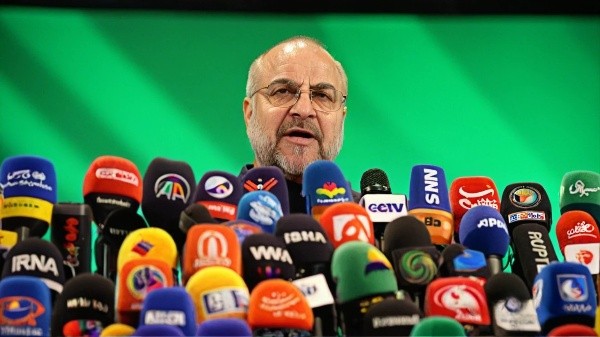Iran’s Plan to Strike Back Against the U.S.
Iran’s Military Preparations Following U.S. Attacks
Loading...

Tehran has announced it has two new advanced centrifuges in response to a critical resolution from the IAEA
Tehran Expands Centrifuge Capabilities Amid International Tensions
In a significant move following criticism from the International Atomic Energy Agency (IAEA), Iran has announced the inauguration of two new advanced centrifuges aimed at enhancing its nuclear enrichment capabilities. This announcement was made by Mohammad Bagher Ghalibaf, the speaker of Iran's parliament, reflecting Tehran's commitment to expanding its nuclear program despite international scrutiny.
IAEA Resolution Sparks Controversy
The backdrop to Iran's recent developments is the IAEA's resolution passed during its board of governors meeting last Thursday. This resolution was critical of Iran’s transparency regarding its nuclear activities. While the resolution faced opposition from China, Russia, and Burkina Faso, it ultimately passed with 19 votes in favor, alongside 12 abstentions. Notably, Venezuela did not participate in the vote. Prior to the resolution’s passage, the United Kingdom, France, and Germany issued a joint statement declaring that Iran's nuclear program poses a significant threat to global security, a sentiment echoed by the United States, which described the situation as "deeply troubling."
Iran's Response: A Call to National Sovereignty
In response to the IAEA's actions, Ghalibaf characterized the resolution as indicative of the West’s "politically unrealistic and destructive approach" toward Iran. He accused Western nations, particularly the US, of using Iran's nuclear advancements as a pretext for their own “illegitimate actions.” He further contended that such resolutions undermine the IAEA’s credibility and independence, disrupting efforts for constructive cooperation between Iran and the agency.
Ghalibaf's remarks emphasized that the politically charged decisions made by Western powers compel nations to take protective measures outside IAEA protocols. He stated, "These decisions force countries to take measures outside the IAEA protocols to safeguard their national security," underscoring Iran's justification for expanding its nuclear capabilities.
Diplomatic Friction and Political Allegations
Iran's ambassador to the IAEA, Mohsen Naziri Asl, echoed Ghalibaf's sentiments, labeling the resolution as “politically motivated.” This perspective aligns with Iran's long-held position that its uranium enrichment activities are purely for peaceful purposes. However, Western nations have continuously expressed concerns that these activities may covertly facilitate the development of nuclear weapons.
The 2015 nuclear agreement between Iran and world powers initially imposed restrictions on Iran's nuclear program in exchange for sanctions relief. However, the deal unraveled after the United States withdrew in 2018, leading Iran to progressively enhance its enrichment capabilities. According to IAEA Director General Rafael Grossi, Iran is now approaching the threshold for weaponization, heightening international concerns.
The Path Forward: Negotiations and Conditions
During a recent visit to Tehran, Iranian Foreign Minister Abbas Araghchi warned IAEA officials, including Grossi, that a response would follow if the board passed an anti-Iran resolution. He indicated that Iran is open to renegotiating the 2015 agreement but insists that any new arrangement must be based on mutually beneficial terms.
As Iran moves forward with its nuclear ambitions, the international community watches closely, awaiting the implications of these developments on regional and global security. The ongoing tensions between Iran and Western nations highlight a complex interplay of diplomacy, security, and national sovereignty, with the future of nuclear negotiations remaining uncertain.
Editor
Iran’s Military Preparations Following U.S. Attacks
Troops remain in five strategic locations, raising fears of renewed tensions and long-term occupation.
Opposition forces have taken control of the capital after a significant offensive. Here is how it unravelled.
